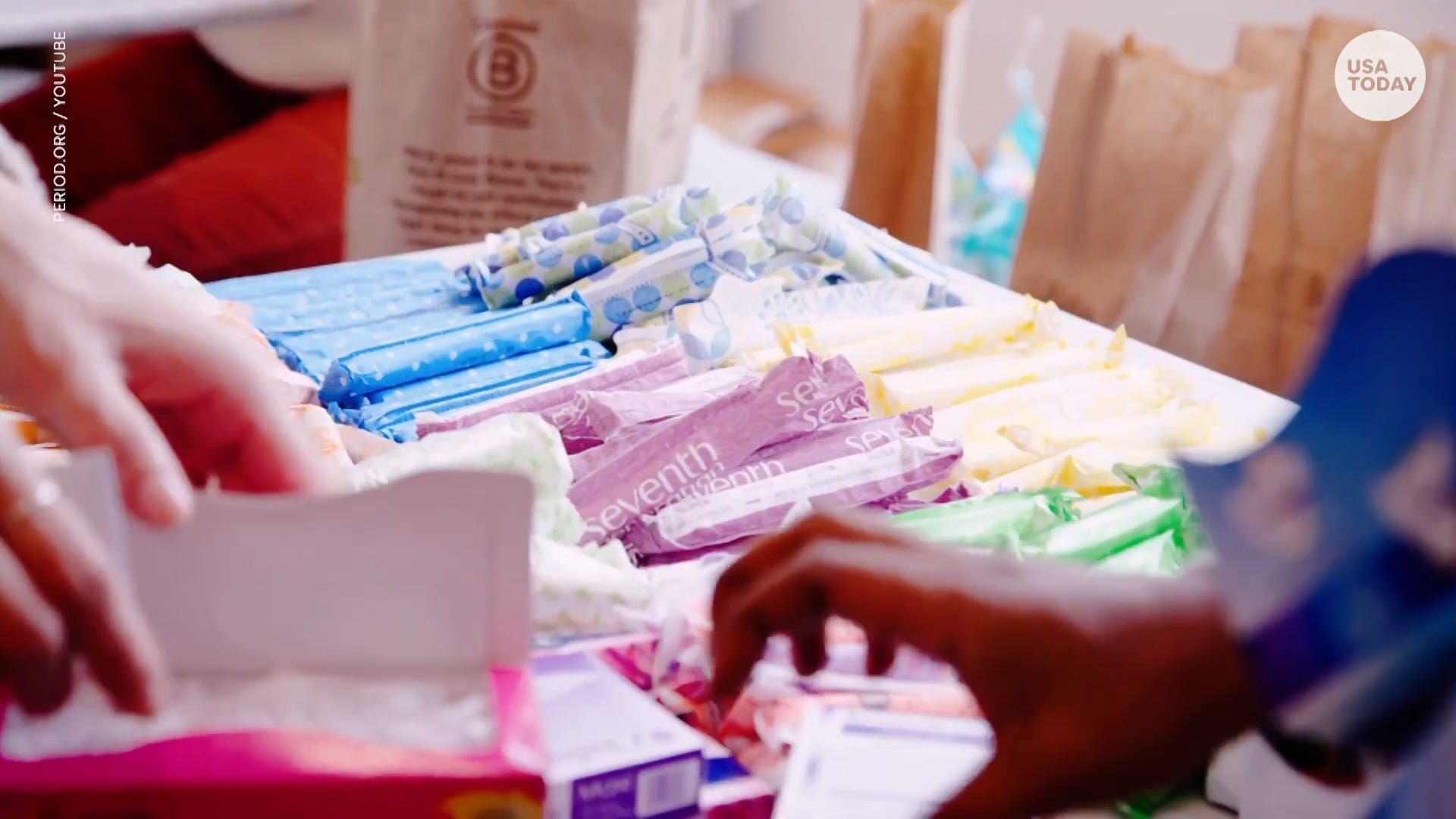California's new class for teens and tweens: Periods, cramps and tampons

Bleeding. Cramps. Menopause.
Teens and tweens enrolled in California public schools will soon learn about these topics now that a law made it mandatory.
California Gov. Gavin Newsom approved the Know Your Period Act in late September, making the Golden State among the first places to require menstrual health education.
The new law, which goes into effect in January, is modeled after the first menstrual health education requirement in schools in Washington, D.C., last year, said Edgar Guerra, a spokesperson for Democrat California Assemblymember Lori Wilson, who authored the bill.
"By including menstrual health in our curriculum, we're not just filling a knowledge gap – we're breaking down barriers of stigma and misinformation," Wilson wrote in an email to Paste BN.
While California and Washington, D.C. broadened their curriculum, lawmakers in some states have banned sex education after Republicans and conservative parents' groups challenged sex education and lessons about gender and LGBTQ+ identities.
What will students learn in sex education?
The lessons must cover stigmas, irregularities, hygiene and pain management, menopause and other topics related to the menstrual cycle for students in seventh to 12th grade, the new law says.
Those lessons will be taught within California's long-established sex education curriculum. The state, for years, has required high school and middle school students to learn about sexually transmitted infections, healthy relationships and sexuality.
The law was designed to foster "a more inclusive and informed environment for all students," according to a summary provided by Wilson's office.
The timing for menstrual health lessons starting is unclear, Guerra said. The curriculum first needs to be approved by the state.
When does menstruation start?
U.S. children who menstruate are most likely to get their first period around the age of 12, according to research published in JAMA Pediatrics. Girls of color are more likely to start their menstrual cycles when they're younger than others, the JAMA research shows.
Dr. Holli Jakalow, an OB-GYN and assistant professor of Obstetrics and Gynecology at Columbia University Irving Medical Center, said the young patients who visit her office in New York City are often uneducated about menstrual health before she sees them. These patients are as young as 12 but they include older teenagers.
Jakalow said she is usually the first person after parents to teach them about certain body parts, menstrual cycles, hormones and reproductive and sexual health. She thinks it would help if school systems taught kids about periods and menstrual health.
"Before young people are the age where they get their period, they should know what to expect, know what their period is and know of the general cycle – that this is what happens during the menstrual cycle," she said.
What are people saying about the law?
Sriya Srinivasan, a 16-year-old high school junior from Solano County, California, inspired the Know Your Period Act, said Guerra, from Wilson's office. Wilson's district had launched a campaign inviting constituents to suggest ideas for new laws they'd like to see in California. Srinivasan proposed the menstrual education law and continued to lobby for its passage after Wilson introduced the bill.
Srinivasan had been concerned when her period didn't come for nearly a year in seventh grade. At the time, she was running a lot on the track team and wasn't always fueling her body properly, she said.
Srinivasan, then 11, said she asked her friends and family for advice. They didn't know why her period was irregular.
"I didn’t know what was going on," Srinivasan told USA Today. "I searched online and there were various pieces of disinformation that said it could be ovarian cancer or other illnesses."
Her parents took her to see a doctor who diagnosed Srinivasan with anorexia nervosa, an eating disorder, and referred her to a nutritionist. The nutritionist educated her about her eating, she changed her eating habits and her period returned.
The visits left her family with costly medical bills that she said she wished they could have avoided.
"I should’ve already known that a lack of nutrition would result in me not getting my period," she said. "But I didn’t get that education."
Srinivasan is elated that California students will have more knowledge than she did.
No California lawmakers voted against the law, however, an advocate from a conservative parents' rights group pushed back on some of the details.
Tiffany Justice, a co-founder of the group Moms for Liberty, said she mostly supports age-appropriate menstrual health lessons in schools that teach "little girls that periods are wonderful, a part of growing up and natural."
She thinks understanding this is important, because, "No girl should get their period and think that they're dying."
But Justice is concerned that boys will be taught they can have periods and if the lessons push what she referred to as "a social contagion of gender ideology."
8 states restricted sex ed last year. More could join amid growing parents' rights activism
While the law was under consideration, Srinivasan said, some constituents told her they thought it should be left to mothers, family members or doctors to teach young people about their menstrual health.
She disagrees.
"Not everyone has access to a mom, a sister or a doctor to have these conversations with," Srinivasan said.
Contact Kayla Jimenez at kjimenez@usatoday.com. Follow her on X at @kaylajjimenez.